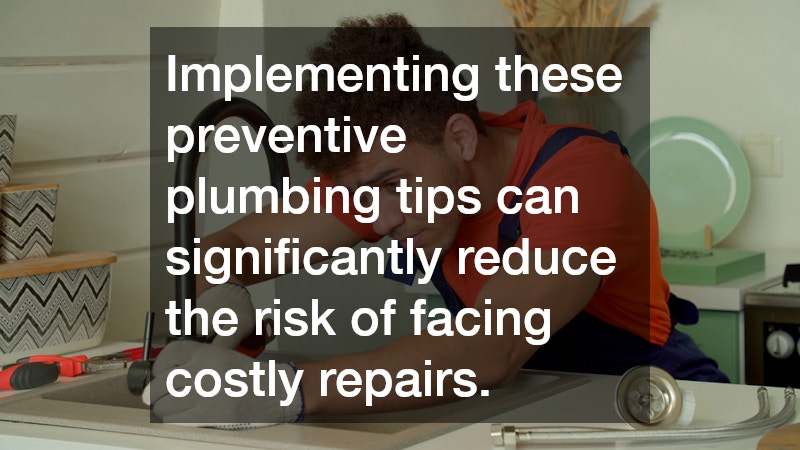Preventive Plumbing Tips from a Plumber: How to Avoid Costly Repairs
Understanding the importance of regular plumbing maintenance can save homeowners from unexpected and often costly repairs. This article explores the essential preventive plumbing tips that every homeowner should know to keep their plumbing system running smoothly.
How Can Routine Inspections Prevent Plumbing Failures?
The Importance of Scheduling Regular Plumbing Checks
Routine plumbing inspections are critical for detecting minor issues before they escalate into major problems. Through regular checks, homeowners can identify leaks, corrosion, or other potential issues that might lead to significant repairs.
Plumbers recommend scheduling these inspections at least once a year to ensure the plumbing system is in peak condition. For homes with older plumbing, increasing the frequency of inspections can help capture minor faults earlier.
Preemptive maintenance allows homeowners to plan for repairs, minimizing the surprise element of unexpected plumbing failures. By catching issues early, the cost of repairs can be significantly reduced, saving homeowners both time and stress.
Identifying Common Plumbing Red Flags
Homeowners should be aware of specific signals indicating potential plumbing problems. Persistent drips, unusual water pressure, and fluctuating water temperatures can all be warning signs of larger issues.
Strange odors from drains, unexplained patches of wetness in the yard, or consistently clogging toilets should not be ignored. These red flags often signal underlying problems that require professional intervention to avoid worsening.
Recognizing these common red flags enables timely intervention, ensuring smaller issues don’t snowball into significant, more costly problems. Early intervention, based on recognizing these signs, forms the cornerstone of preventive plumbing maintenance.
What Are Simple Plumbing Maintenance Tips for Homeowners?
Effective Drain Maintenance Practices
Regularly cleaning and clearing drains is essential to prevent clogs and backups that lead to costly repairs. Homeowners can use simple solutions such as baking soda and vinegar to maintain clear and odor-free drains.
Installing drain covers can help prevent hair, soap, and debris from entering the plumbing system, thereby reducing the risk of blockages. Ensuring your drains are running freely also helps maintain overall water flow efficiency within your home.
By incorporating these simple practices into routine household maintenance, homeowners can significantly reduce the likelihood of encountering major drain-related troubles. Consistent drain care is key to longevity and optimal functioning of the entire plumbing system.
Maintaining Water Heater Efficiency
To maintain water heater efficiency, regular maintenance such as flushing the tank to remove sediment build-up is essential. Sediment build-up can impede the heating process, leading to higher energy costs and reduced heater lifespan.
Homeowners should also check their water heater’s pressure relief valve to ensure it’s functioning correctly. This valve plays a crucial role in preventing pressure-related damage to the unit.
Ensuring your water heater operates efficiently not only extends its service life but also contributes to household energy savings. Routine water heater maintenance is a crucial step in preventing the need for premature and costly replacements.
Conclusion
Implementing these preventive plumbing tips can significantly reduce the risk of facing costly repairs. Regular maintenance, careful inspections, and timely interventions play a vital role in maintaining the integrity of a home’s plumbing system and ensuring a steady flow of water throughout the year.





